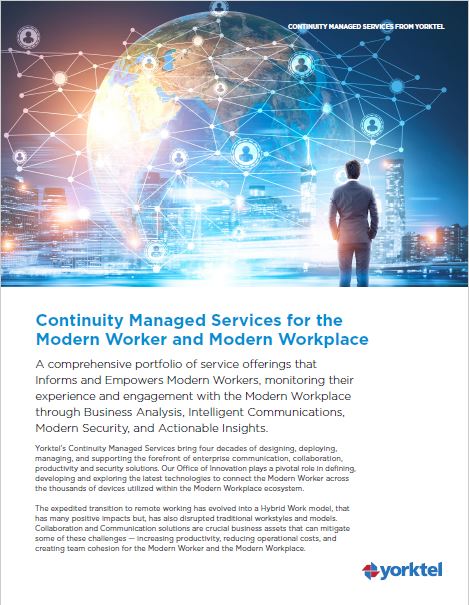Many companies rely on IT managed service providers (MSPs) to manage their hardware, software, and cloud services. The MSP worthy of your business should be prepared to support your business far into the future. It should be able to scale and adapt its services to keep up with your business growth.
With these basic ideas in mind, here are five qualities the best managed service providers share:
1. Industry and Technology Expertise and Certifications
Third-party recognition of an MSP’s skills and practices is critical. Many companies claim to be capable of maintaining complex IT architectures, including public, private, or hybrid cloud platforms, high availability networks, and supporting large user communities. Certifications, partnerships, and accreditations back up those claims and provide peace of mind.
Compliance with industry certifications like HIPAA, ISO 9001, and ISO 27001 demonstrates that an MSP has defined business practices and is up to working with regulated public sector institutions and corporate enterprises.
Technology partner certifications from high-profile brands like Microsoft, Cisco, and Poly prove that an MSP’s employees have completed the training and testing required to design, build, deploy, and manage the technology from those vendors. A wide variety of certifications across categories like collaboration, cloud, security, and analytics shows that the MSP can support many of your company’s technology needs. Contracting multiple MSPs can be administratively and contractually complex, and financially costly.
2. Case Studies and Testimonials
Nothing succeeds like success as the saying goes. MSPs should offer success stories about their customers, even if company and contact names are withheld for confidentiality reasons. Everyone likes a good story (one of our favorites about Yorktel). IT and line of business (LOB) executives appreciate a non-fiction account of a company of similar size, industry, and complexity that can help them build a business case for contracting managed services like managed collaboration, communication, and cloud services.
3. Transparency
Outsourcing the management or monitoring of your applications, platforms, data, and devices shouldn’t leave your team in the dark about activities that impact your digital environment. The best managed service providers are transparent throughout their relationships with their client business partners, including their service level agreements (SLAs), reports, and ongoing communication.
No business or organization can afford to have its business applications or IT infrastructure operate like a “black box.” Data breaches, connectivity issues, and service interruptions are damaging enough. Not knowing these events even took place can ruin an organization’s reputation, and expose them to dire legal consequences. Ensure regular communication (with all stakeholders), and comprehensive reporting, are included in your SLA documentation.

Continuity Managed Services for the Modern Worker and Modern Workplace
Yorktel’s Continuity Managed Services bring four decades of designing, deploying, managing, and supporting the forefront of enterprise communication, collaboration, productivity and security solutions.
4. Thought Leadership and IT Roadmapping
The best MSPs bring more to the table than just their core service offerings. They have a long-term vision for how the technology they manage for their clients drives strategic business value in the near term, and far into the future. Understanding that long-term value generally requires an IT readiness road mapping exercise, to ensure they are prepared for the twists, turns, and pitfalls that lay ahead.
Most modern workplaces support a hybrid of remote and office-based employees. Partnering with an MSP can help employees to collaborate with their colleagues and partners, and stay connected to the information they need to do their job effectively.
Earning the right to “shepherd” companies through digital transformations, and manage their technology requires a lot of authority and credibility. The kind that resonates in blogs, whitepapers, and videos and continues through presentations, meetings, and day-to-day interactions. At the very least, MSPs should practice what they preach, and run the technologies in-house that they manage for their clients. Ideally, they should be able to forecast how a customer’s technology stack should evolve over time, provided they partner with the MSP. They should also be able to describe the opportunity costs if they try and go it alone, or take their business elsewhere.
5. Accountability
Once a business has built accountability and established a roadmap for a client, it must be proactive in demonstrating where they miss, meet, or exceed the key performance metrics it established at the beginning of a contract. That accountability often includes service credits, or at least post-mortem discussions of what went wrong, why, and how performance gaps can be addressed in the future.
Circumstances change, and mistakes are made. Growing businesses and institutions need a technology partner that delivers on their promises or will live up to the consequences of missing their obligations.
Here at Yorktel, we are an IT managed service provider that supports our clients’ structured operational data, and unstructured collaboration data. We have the relationships, credentials, expertise, and experience necessary to keep your applications, networks, and devices secure and available when you need them. Ready to talk to an expert about your managed service provider needs?
